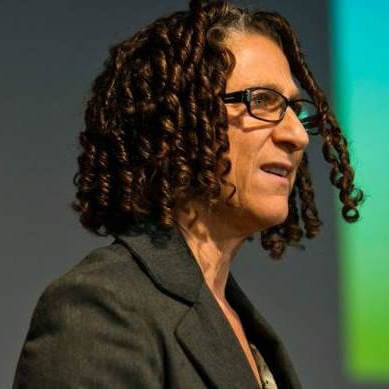News
Cynthia Dwork will join Harvard in January 2017 as the Gordon McKay Professor of Computer Science at SEAS
CAMBRIDGE, Ma. – February 19, 2016 – Pathbreaking theoretical computer scientist Cynthia Dwork, who has made seminal contributions in the fields of privacy, cryptography and distributed computing, will join the faculty of Harvard University. She is currently a Distinguished Scientist at Microsoft Research in Silicon Valley.
Dwork will join Harvard in January 2017 as the Gordon McKay Professor of Computer Science at the Harvard Paulson School of Engineering and Applied Sciences (SEAS). She will also hold the Radcliffe Alumnae Professorship at Radcliffe Institute for Advanced Study.
Dwork is renowned for placing privacy-preserving data analysis on a mathematically rigorous foundation. A cornerstone of this work is differential privacy, a strong privacy guarantee and a collection of methods that allow researchers to analyze large data sets containing sensitive personal information – such as medical and mortgage application records – while preserving the privacy of the individuals whose information is contained therein.
“Harvard’s Paulson School and the Radcliffe Institute provide an unparalleled intellectual environment for applying theoretical computer science to questions of pressing societal concern,” Dwork said.
In recent years, she has investigated the problem of ensuring fairness in algorithms, the ubiquitous rules that make decisions in settings ranging from screening job applicants to targeted advertising of luxury resorts. “Algorithms and systems form, literally and inexorably, a codification of values,” Dwork says. “We have taken a fruitful first step toward a mathematical abstraction capable of accommodating a wide range of context-specific notions of fairness, and amenable to rigorous analysis.”
Dwork’s early work in distributed computing underlies critical systems supporting the web applications we rely on today, including search, e-commerce, and cloud computing. Among other contributions, Dwork and her colleagues launched the subfield of modern cryptography that studies – and remedies – the propensity of cryptographic protocols to interact badly in the tumultuous world of the internet.
“Cynthia Dwork is a visionary researcher who will bring deep expertise to Harvard’s already-strong computer science program,” said SEAS Dean Francis J. Doyle III. “Her research and teaching will dovetail wonderfully with the outward-facing work of our faculty and students and
initiatives such as our Center for Research on Computation and Society.”
As a Radcliffe Professor, Dwork will spend two of her first five years at Harvard as a fellow at the Radcliffe Institute with 50 leading scholars, scientists, and artists pursuing innovative work across disciplinary boundaries. The fellowship years provide Dwork with freedom to pursue her own research within a unique intellectual community that reaches throughout and beyond the university. Dwork is one of fourteen Radcliffe Professors (the fourth scientist) recruited to join the Harvard faculty.
“We are thrilled that a Radcliffe Alumnae Professorship helped bring Cynthia to Harvard from the private sector,” said Lizabeth Cohen, Dean of the Radcliffe Institute. “Our dedication to boundary-crossing research is an excellent fit with her application of mathematical analysis and computer science to ethical and philosophical questions, including matters of privacy, fairness, and public policy.”
Dwork received her undergraduate degree from Princeton University and Ph.D. from Cornell University. After a two-year post-doctoral appointment at MIT, she joined the IBM Almaden Research Center, where she remained until becoming Compaq Staff Fellow. In 2001 she joined the nascent Silicon Valley campus of Microsoft Research, fostering the growth of a world-class force in theoretical computer science.
She has published more than 100 refereed journal and conference papers and holds two dozen U.S. and foreign patents for methods and systems designed to protect the privacy of communications networks and digital information, improve search systems, and reduce electronic spam.
Dwork was elected a member of the National Academy of Engineering and the National Academy of Sciences, and a fellow of the American Academy of Arts and Sciences and the Association for Computing Machinery, among other honors. She also holds first, second, and third black belt degrees in the Korean karate style of Chun do Kwon.
Dwork joins five distinguished computer scientists who assumed positions on the SEAS faculty this fall, a high octane infusion of intellectual horsepower made possible by a gift from former Microsoft CEO Steve Ballmer ’77.
"Cynthia Dwork is a fabulous addition to Harvard's computer science faculty,” said David Parkes, George F. Colony Professor and area dean for computer science at SEAS. “Her pivotal role in developing a fundamental understanding of how to compute while respecting privacy, fairness and other societal concerns provides another boost to our world-leading computer science research."
Computer science faculty growth has accompanied an explosion in student interest. Since 2007, the number of undergraduates concentrating in computer science has increased by a factor of five to 350. CS50, the introduction to computer programming course, is the most popular class at Harvard with enrollment surpassing 800 students. This year, CS50 was also offered at Yale University where it immediately became the highest-enrollment course on that campus. Applications to the master’s in computational science and engineering at SEAS have more than tripled since the program was launched in 2013.
Harvard is home to major breakthroughs in computer science, from the invention of the first large-scale automatic digital computer to fundamental advances in cryptography and coding, learning theory, data management systems, algorithmic economics, privacy and security, collaborative planning, and the first self-organizing thousand-robot swarm. Harvard computer science students have founded successful companies including Microsoft, Facebook, Electronic Arts, Airbnb, and Zappos.com, among others.
Cutting-edge science delivered direct to your inbox.
Join the Harvard SEAS mailing list.
Press Contact
Leah Burrows | 617-496-1351 | lburrows@seas.harvard.edu
